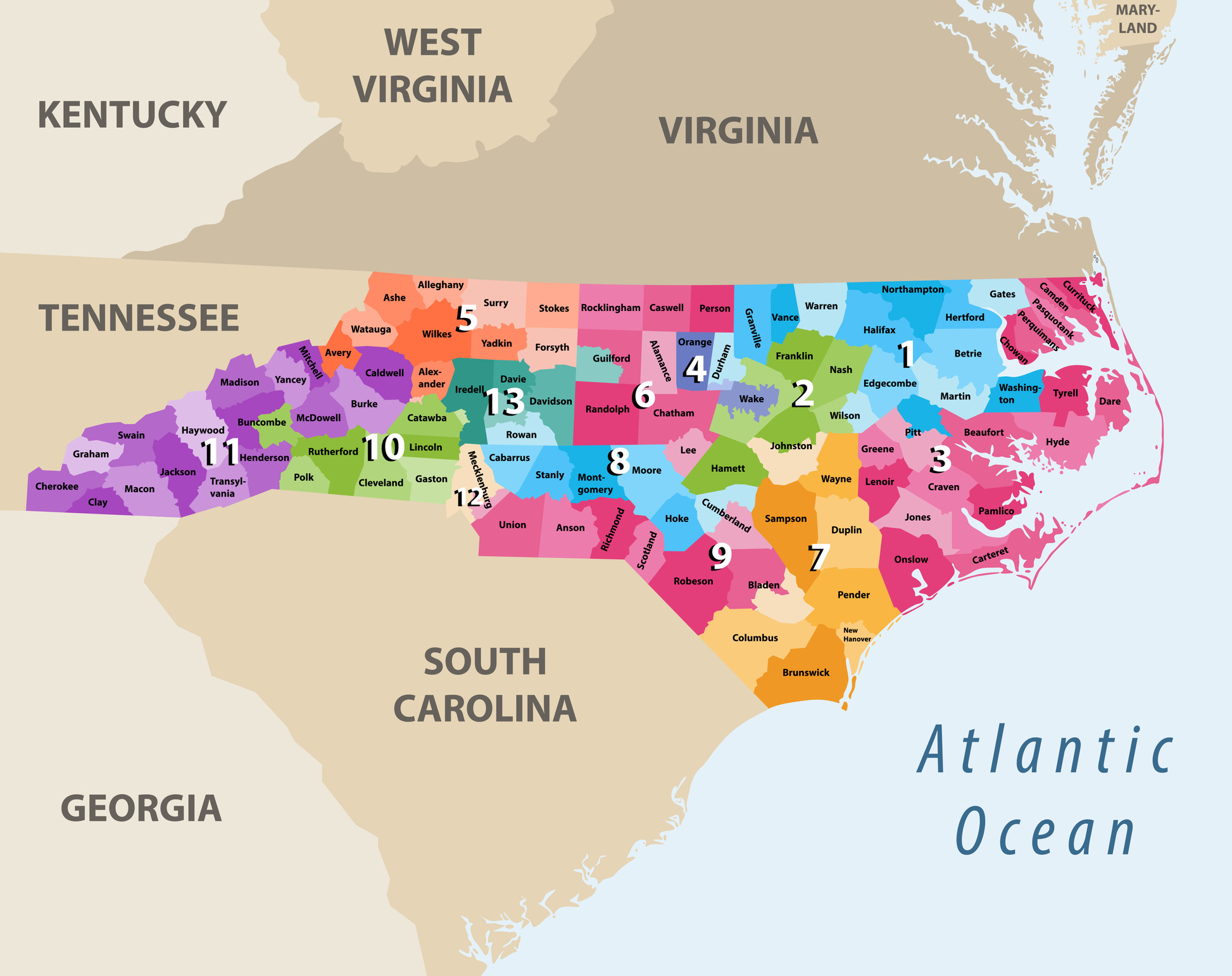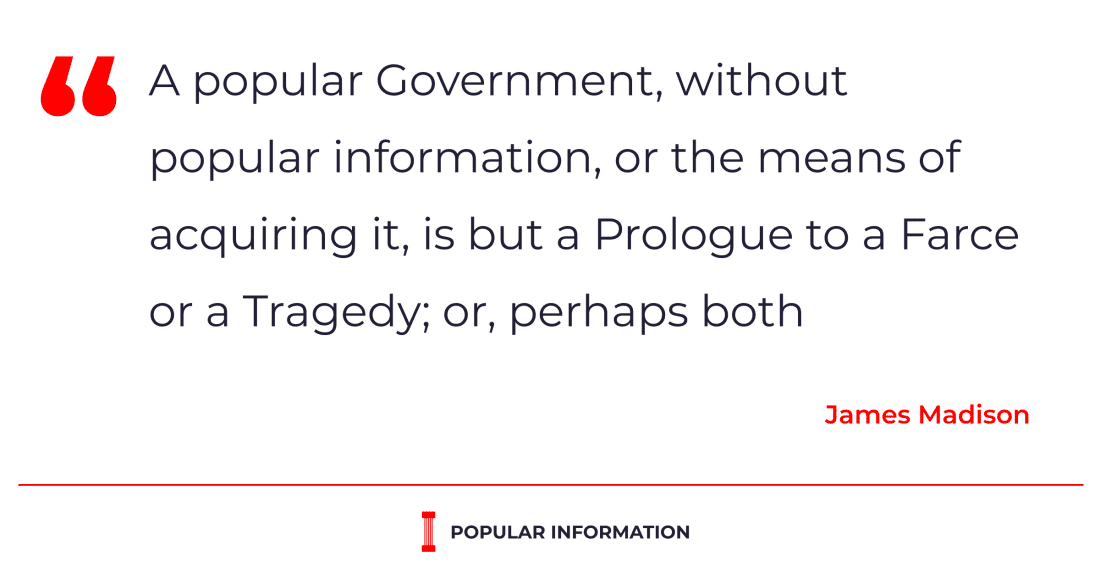 |
President Trump and his allies tried to rig the 2020 Census for their political benefit. The scheme, hatched by anti-immigrant extremists like Steve Bannon and Kris Kobach, involved adding a citizenship question to the Census questionnaire. One goal was to reduce participation in the 2020 Census in immigrant communities. But that was only the beginning.
The ultimate goal was to use the citizenship data to change the balance of power in Washington. Currently, Congressional seats are apportioned to states based on total population, regardless of citizenship status. The data from a citizenship question could be used to reapportion power based on citizens only. This was the long-time goal of a top Republican operative named Thomas Hofeller, who said such a move would empower "Republicans and Non-Hispanic Whites." (Hofeller died in 2018.)
Things hit a snag in June 2019 when the Supreme Court ruled "that the Trump administration did not give an adequate reason for adding a citizenship question to the 2020 Census."
But on Tuesday, Trump decided to plow ahead regardless. Trump issued an executive order stating that he planned to ignore the data from the 2020 Census and apportion congressional seats based only on the number of citizens and other legal residents.
For the purpose of the reapportionment of Representatives following the 2020 census, it is the policy of the United States to exclude from the apportionment base aliens who are not in a lawful immigration status under the Immigration and Nationality Act, as amended (8 U.S.C. 1101 et seq.), to the maximum extent feasible and consistent with the discretion delegated to the executive branch. Excluding these illegal aliens from the apportionment base is more consonant with the principles of representative democracy underpinning our system of Government.
Since the 2020 Census will not have a citizenship question, where will Trump get this information?
I instructed executive departments and agencies to share information with the Department of Commerce, to the extent permissible and consistent with law, to allow the Secretary to obtain accurate data on the number of citizens, non-citizens, and illegal aliens in the country.
In other words, the numbers from the 2020 Census will be ignored. Instead, power will be apportioned based on an opaque and undefined process conducted by Trump's political appointees at the Department of Commerce. These are the same people who tried to rig the 2020 Census in the first place.
This gambit is unlikely to be successful in the long run. What Trump is proposing violates the plain language of the Constitution. But it may be successful in the short run by creating confusion about the ongoing 2020 Census and rallying Trump's anti-immigrant base.
Why Trump's executive order is illegal
The problem with Trump's executive order is obvious from the text of the Constitution. The 14th Amendment, which modifies Article 1, Section 2, "Representatives shall be apportioned among the several States according to their respective numbers, counting the whole number of persons in each State." Notably, there is no mention of citizenship or legal status.
How does one determine the "whole number of persons in each state"? Article 1, Section 2, says, "The actual Enumeration shall be made within three Years after the first Meeting of the Congress of the United States, and within every subsequent Term of ten Years, in such Manner as they shall by Law direct." That enumeration is the Census, and it is a process controlled by Congress. The Constitution does not allow the Trump administration to ignore the results of the Census and come up with its own figures.
The question was settled by a federal court in 1980:
The language of the Constitution is not ambiguous. It requires the counting of the "whole number of persons" for apportionment purposes, and while illegal aliens were not a component of the population at the time the Constitution was adopted, they are clearly "persons."
This is why the ACLU is very confident that the courts will strike down Trump's executive order.
Winning by losing
If Trump's executive order is unlikely to survive a legal challenge, why is he bothering? First, the 2020 Census is ongoing. By creating a news story that makes clear that the administration is trying to use the 2020 Census to target undocumented immigrants, it may reduce participation in the Census in immigrant communities.
Second, the executive order is reportedly part of a broader strategy for Trump to project power, rally his base, and divert attention from his disastrous handling of the coronavirus pandemic. On Sunday, Axios reported that Trump is "privately considering a controversial strategy to act without legal authority to enact new federal policies — starting with immigration." NBC says the executive orders are intended "to boost Americans' confidence in his leadership amid widespread criticism of his handling of the coronavirus pandemic."
The strategy was concocted by conservative legal figure John Yoo, who is best known for authoring memos justifying the use of torture during the George W. Bush administration. Yoo wrote the following in the National Review on June 22.
Suppose President Donald Trump decided to create a nationwide right to carry guns openly. He could declare that he would not enforce federal firearms laws, and that a new “Trump permit” would free any holder of state and local gun-control restrictions.
Even if Trump knew that his scheme lacked legal authority, he could get away with it for the length of his presidency. And, moreover, even if courts declared the permit illegal, his successor would have to keep enforcing the program for another year or two.
Yoo said this was the result of the Supreme Court's decision to prohibit Trump from rolling back DACA, which Obama put into place by executive order. Yoo says he has "met virtually with White House officials about the implications of the ruling."
Yoo is misreading the Supreme Court's decision. "The DACA majority didn’t bind presidents to every act of a predecessor, just that an action that creates reliance interests can’t be overturned without taking that into consideration," Above The Law explained.
But Trump plans to use Yoo's argument as a road map for the months leading up to the presidential election. Appearing on Fox News Sunday, Trump said he would be implementing a new health care plan via executive order within the next two weeks. "[T]he Supreme Court decision on DACA gave me the right," Trump said.
Top image: iStock / Getty Images Plus
Thanks for reading!
 |

